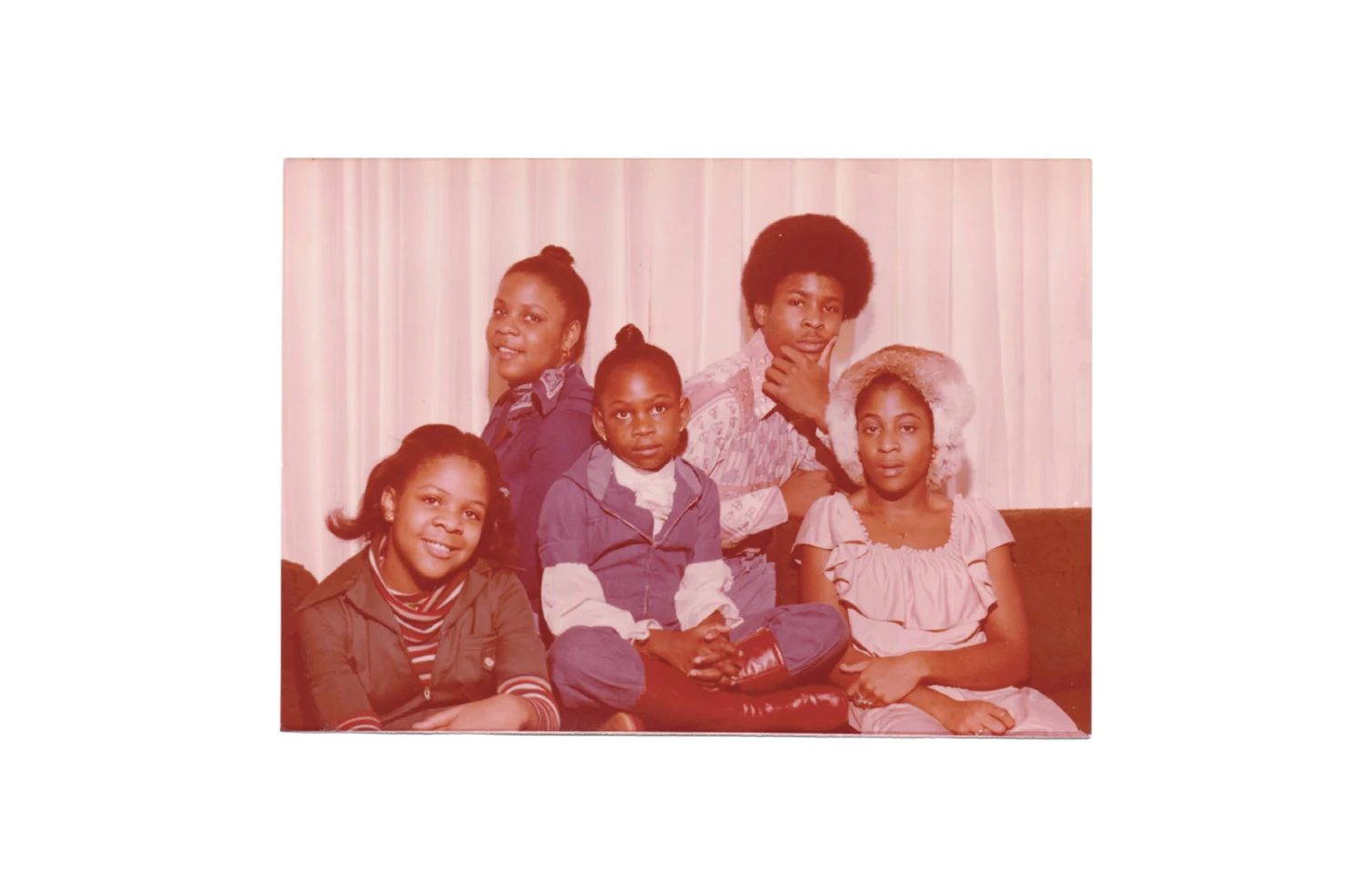nothing new under the sun
“Sampling is basically the ability to take a piece of a song and then loop it. You make it go over and over again and then create a new song.” Jimmy Jam, Record Producer
“... Which most people equate with stealing other people’s music. This isn’t exclusive to hip hop. This has been going on since the beginning of time. There’s really a limited number of notes and a limited number of chords, and these have all been replayed throughout history.” Mike Simpson, Record Producer
“There’s a kind of political aspect to the sampling of Public Enemy. They were sampling particular artists, particular sounds that referenced the entire history of black musical materials. They connected the past to the present to the future.” Jason King, Culture Writer
Soundbreaking: The World Is Yours, Episode 6, PBS
A STORY
King Solomon in refrain writes, “There is nothing new under the sun.” If we pull back our lens to get a better look at our world, we will find that he was absolutely right. From the beginning, God takes chaos—something that was already there—and makes the entire world by speaking four words, “Let there be light.” He continues to create and create and create, each day building upon what was already there. He pulls and folds and molds more and more light. Then, using His own image—again, something that was already there—He creates Adam. Taking Adam’s rib, He creates Eve. There is nothing new under the sun, and yet everything has been made new.
Music sampling—taking a song and recreating it by looping it into another song—has been described as “a kind of musical equivalent of Adam’s rib.” Just like Eve, since it took it’s first breath, sampling has been equal to but opposite from the source from which it was created. Like Eve, sampling is a helpmeet, a warrior created because no-one and nothing can do great things alone.
This is a beautiful thing.
My husband was a freckled, redheaded boy trading bootlegged hip-hop cassettes with his friends on the southern coast of England. It wasn’t until we were married that he learned some of the origins of some of the songs that he loved. For me, Le Chic’s Good Times was a song that was played at the roller rink where my friends and I hung out on a Saturday afternoon. It was the song we heard at every family reunion and every wedding. For him, Good Times was the backdrop of Sugar Hill’s Rapper’s Delight. It didn't exist for him before that song.
I’ll admit that I don’t really know half as much as my husband knows about hip-hop and old school funk and R&B. However, while he might occasionally throw on something I’ve never heard, I will be the one to call out, "Hey that's James Brown," because I recognize the loop from an old JB song that my Aunt Porky used to play while she and my mother would get ready to go out. Or, he might dig out some old Parliament album and play a song that I’ve actually never heard or perhaps can’t remember. But I will recognize the album cover from the stacks of records that rested in old plastic milk crates next to our record player in the family room throughout my childhood. He might play a Funkadelic song and I willI tell him, “My sister, Debbie, went to that concert,” while he stares at me wide-eyed, completely bewildered. Who knew our childhoods could so closely intersect, though we were separated by four years and an entire ocean?
Sampling does for hip hop what the public reading of the scrolls did for Jewish people in biblical times. It connected the past to the present. It made what was then, here and now. Sampling unrolls stories recorded from the days of old and finely tunes out the muffled static of the past by blending it with the new, so that we can all hear it better. This is a skilled technique that Jesus often used to bridge the gap between the haves and the have-nots.
In the book of Luke, when Jesus first begins His ministry, He takes the scroll and reads, “The Spirit of the Lord is upon Me, the Messiah, because He has anointed Me to preach the good news to the poor. He has sent me to announce pardon and forgiveness to the prisoners, and to recover sight to the blind, and to set free those who are oppressed, downtrodden, bruised, crushed by tragedy. He has sent Me to proclaim the favorable year of the Lord—the day when salvation and the favor of God abound greatly.” Jesus took Isaiah 61:1 and 2, and mixed it into Isaiah 58:6 to make something that synagogue listeners had never heard—even though it was generations old. Jesus made it His own. He fine-tuned the message, proclaiming, ”I am the Messiah written about in this scroll. I am the One who has come to set things straight!” And the people who were at first amazed become outraged!
We value originality in the oddest way—that is, we don't really value it, because we haven't ever really seen it. And yet we want it, though we'll never recognize it—especially if it stems from anything that we hold dearly familiar. We want it but we don't want to receive it any way that rubs up to close to what we already feel we own. But is there anything truly original? Is there anything new under the sun? Scientists, theologians, philosophers, and innovators have been puzzling over this question for centuries. Solomon, the wisest man who ever lived, says no, there's nothing new under the sun and that all attempts to find something new is just chasing after the wind.
All of our stories, songs, books, quotes, sayings, scripts—all of our words represent "us" as a collective whole. It's no wonder that we all feel super protective about how "we" are recorded in our books, music, TV shows, movies—even in our presidential slogans. We want to hear something original and new that reflects something familiar. This is so hard to do in music because what note or chord hasn't already been played? We call sampling "cheating". However, we call a new way to make Caesar dressing "innovative". Isn't that a double-standard?
For example, no one seems to care if I take my mother’s macaroni and cheese recipe and replace her Velveeta for aged-cheddar. No one says to me, “That’s not real macaroni and cheese.” However, we have said that records that use sampling are not real music. We've said, "That’s stealing," when chefs have been sampling recipes for as long as we've been creating music. There was the Caesar salad and then there was the Chicken Caesar salad, and no one said, "That's not a real Caesar salad."
Artists can up-cycle an umbrella into a lamp. However, we’re offended when Run DMC up-cycles an Aerosmith song. We call it plagiarism, which is the greatest insult to all artists. Elvis, The Beatles, and Led Zeppelin took riffs and bits of old blues songs and made them their own. But hip-hop producers, rappers, and DJ’s are rarely given the same credibility. We are precious about the origins of songs that we feel we know like our own souls. But we don't really know the origins of most of the songs that we love.
When my husband gave original credit of the song Strawberry Letter 23 to Shuggie Otis, those were fighting words! I scoffed, “That’s not the original. He stole that from The Brothers Johnson!” I couldn’t have been more wrong, and I admit that I was really bothered that my white, British husband knew the origin of something that had felt to me quintessentially black and a part of my black experience soundtrack. It made me feel like I could no longer trust my own memories. It put me in a bit of a funk for a couple days. Eventually, I had to decide if I could live with the truth that had been revealed. Strawberry Letter 23 was still part of my black experience. It's root was just in a different location. Luckily for me, I could accept it, and so nothing had been lost. I had only gained something new, and maybe even a bit deeper and richer.
We love the familiar. But we're always craving something new. We're wind chasers.
If I had been listening in the synagogue that day when Jesus read from the scroll, would I have lost Him when He finally revealed Himself because He chose to change something that was too engrained in my memory? Would I have been outraged and offended? I know the answer. Jesus tweaked all the familiar ingredients of the text and added new flavor.
I'm sad to admit that I only adore a sample if it's unadulterated, and an unadulterated sample doesn't exist.
CONTEMPLATION
What is a song from your childhood or past that you loved, but when you heard it remade as a cover or used as a sample you felt offended?
What traditions from your childhood have you remade?
What story have you heard for years, but found it suddenly drastically changed when you heard new someone tell it from a different point-of-view?
MORE
The Public Reading of Scripture, The Bible Project
How Sampling Transformed Music by Mark Ronson, TED2011
Soundbreaking: Stories from the Cutting Edge of Recorded Music, Episode 6: The World Is Yours, PBS










